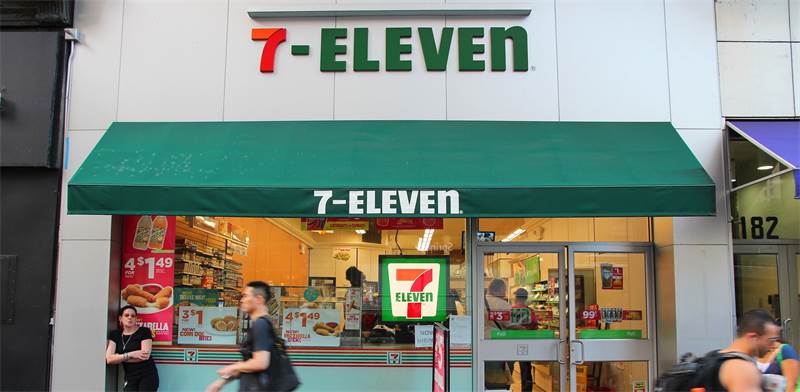Electra Consumer Products and Fox-Weizel are in talks with the US company on a franchise for operating the convenience store brand.
Convenience store chain 7-Eleven is on its way to Israel.
Fashion group Fox-Weizel Ltd. (TASE: FOX) and Electra Consumer Products, which among other things owns electrical goods chain Mahsanei Hashmal, will bring the US-based chain, which has over 70,000 stores in seventeen countries, to Israel.
The stores are open 24-hours a day, and generate revenue of some $61 billion annually.
Electra Consumer Products, headed by Zvika Shwimmer. reported that it was in talks with 7-Eleven on a memorandum of understanding concerning a franchise for developing and operating convenience stores under the brand in Israel, through a special purpose vehicle.
Listed fashion group Fox is due to join the franchise agreement.
If the plans materialize, Electra Consumer Products and Fox will set up a joint company, owned in equal shares, to run the chain in Israel.
This will be the first time either company has gone into food retailing, which is a challenging and competitive sector, with special challenges in the Israeli market, such as kashrut.
How large is the chain’s potential in Israel? “When 7-Eleven goes into a country, it’s to open no fewer than 100 stores,” industry sources said today. If an agreement does materialize, the chain’s first stores will open in mid-2021 in Tel Aviv.
These will be stores of 50-300 square meters in size, selling classic supermarket products, as well as fresh produce, prepared food, hot beverages, and products under the chain’s own brand.
Unlike the convenience stores that already operate in Israel, such as Yellow, So Good, and Menta, which are mainly at fuel stations, 7-Eleven operates in city centers, at corners of main thoroughfares, at railway stations, office sites, as well as fuel stations. It will thus also compete with the urban formats of the large supermarket chains.
One of the main questions that arises in connection with the company’s advent in Israel is whether the franchise owners will allow it to open on Saturdays, which is when the existing convenience stores make a substantial part of their earnings.
The assessment is that the chain will operate at weekends in residential neighborhoods and city centers, but will close stores in places where it is not worthwhile opening on Saturdays, such as in business districts and at railway stations.
Only recently, Rami Levy, who controls the eponymous supermarket chain, declared that the Saturday opening issue made him forego partnership with Delek in the Menta convenience store chain.
The trend of online groceries purchasing, which has strengthened as a result of the coronavirus pandemic, also favors convenience stores, where people go to make supplementary purchases of odd items to top up what they were unable to get online.
7-Eleven began in the US in 1927, and is credited with inventing the model of continuously open convenience stores.
(Globes).
